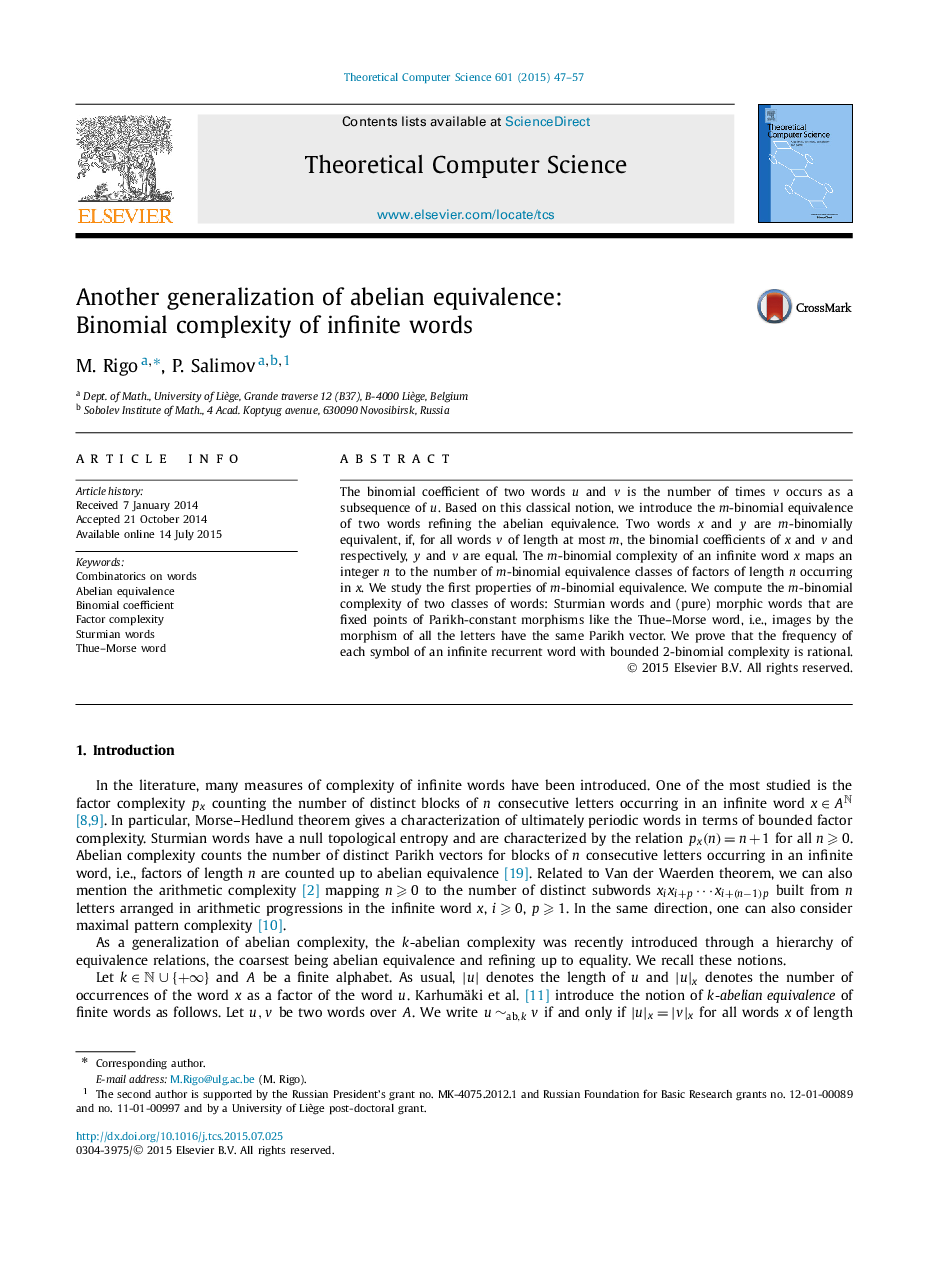| Article ID | Journal | Published Year | Pages | File Type |
|---|---|---|---|---|
| 435710 | Theoretical Computer Science | 2015 | 11 Pages |
The binomial coefficient of two words u and v is the number of times v occurs as a subsequence of u. Based on this classical notion, we introduce the m-binomial equivalence of two words refining the abelian equivalence. Two words x and y are m-binomially equivalent, if, for all words v of length at most m, the binomial coefficients of x and v and respectively, y and v are equal. The m-binomial complexity of an infinite word x maps an integer n to the number of m-binomial equivalence classes of factors of length n occurring in x. We study the first properties of m-binomial equivalence. We compute the m-binomial complexity of two classes of words: Sturmian words and (pure) morphic words that are fixed points of Parikh-constant morphisms like the Thue–Morse word, i.e., images by the morphism of all the letters have the same Parikh vector. We prove that the frequency of each symbol of an infinite recurrent word with bounded 2-binomial complexity is rational.
